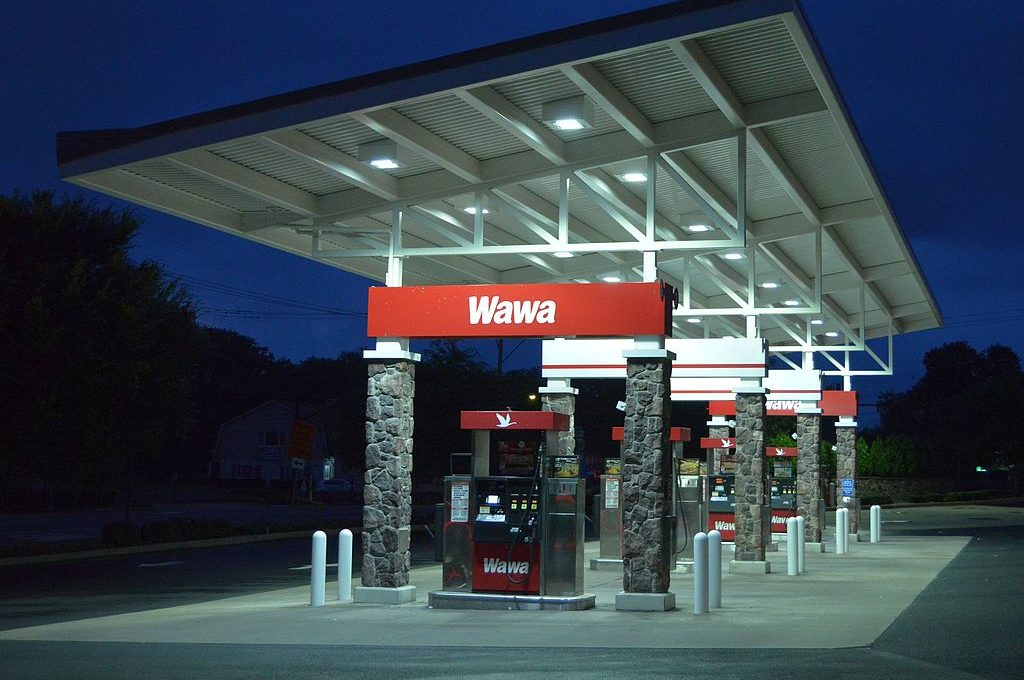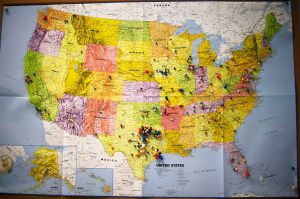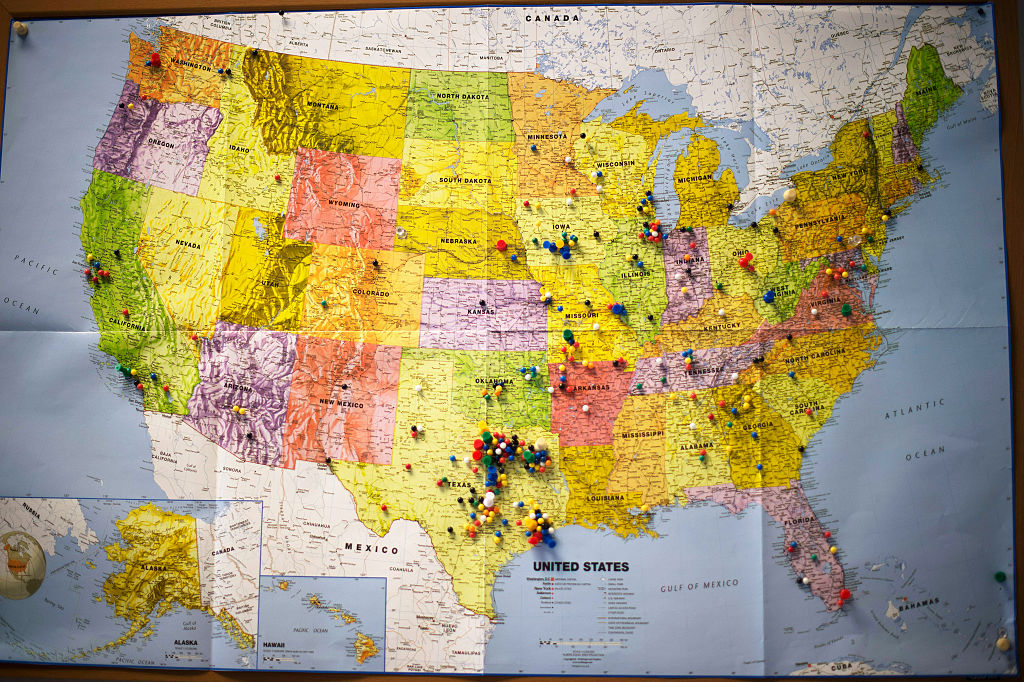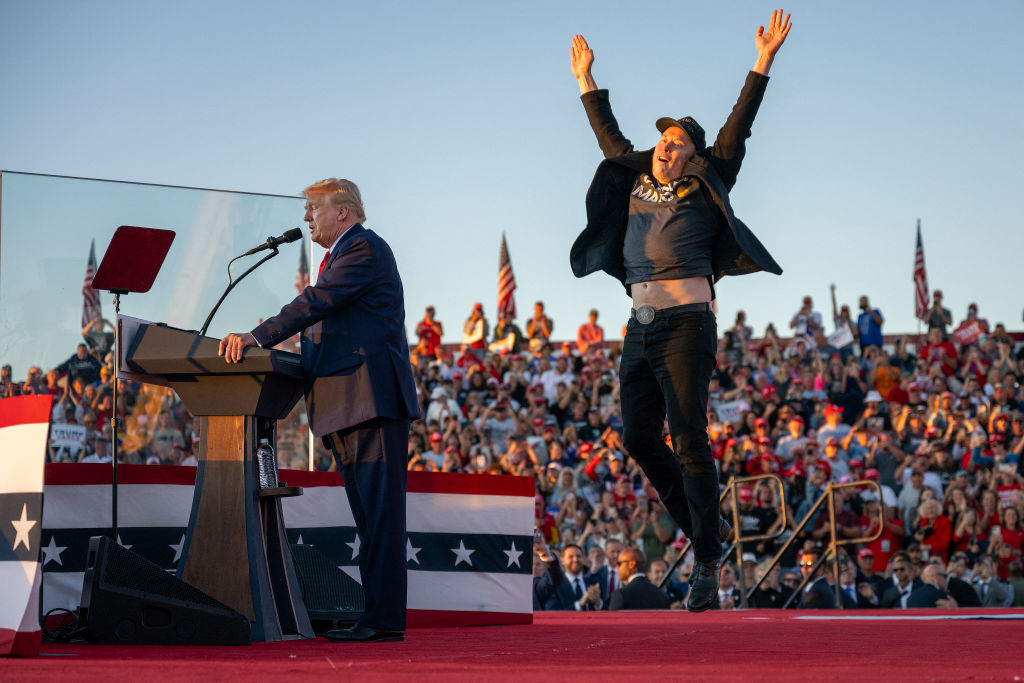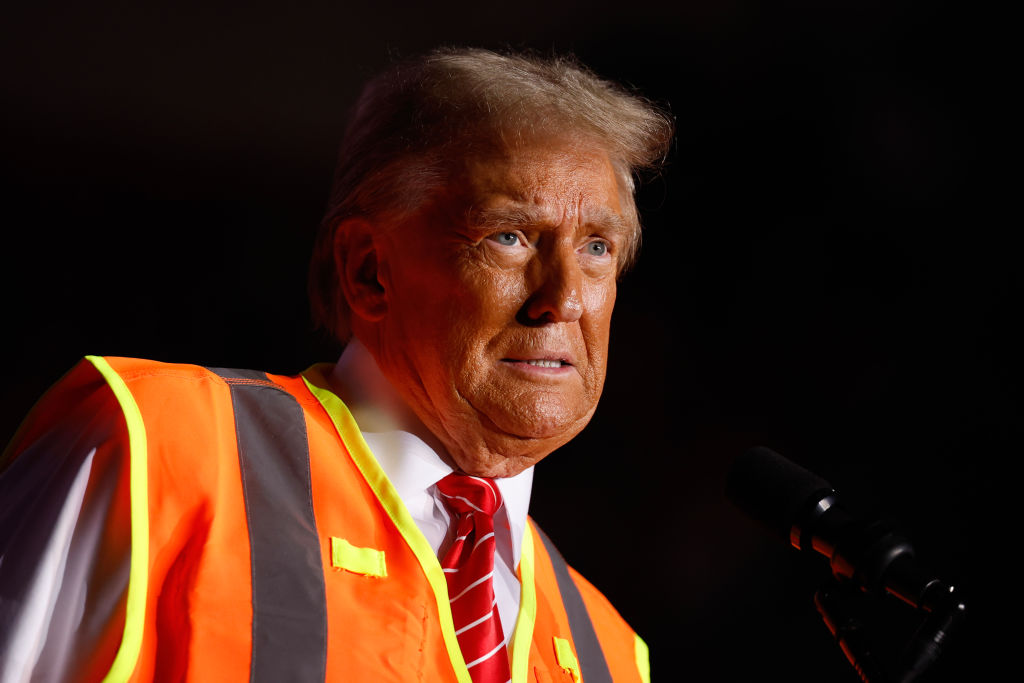One afternoon towards the end of my first year of high school, as I filed through the crowded halls to my locker, I saw the news ripple as visibly as a breeze through a cornfield in August. A Sheetz was opening that very day, at the summit of Queen Street, off I-83. My little Pennsylvania city was on the map. We’d finally chosen a side in the great gas station wars.
Now that the hit HBO show Mare of Easttown has brought the world’s attention to one of America’s greatest shames — Pennsylvania accents — it’s also reminded us of the fierce loyalty residents of the emptier parts of the mid-Atlantic have toward our convenience stores. Mare and her fellows refer to their Wawa hoagies and coffees with a curious, pointed frequency, satirized in a recent SNL skit. It’s true that you might be distracted by the centrality of Wawa to these characters’ lives (does Easttown not have a grocery store?), but in fact the Wawa-centricity of Easttown strikes me as entirely realistic. Not everyone here in Pennsylvania is a heroin addict, a prostitute, or a crooked cop, but everyone spends a lot of time at the gas station. The real question is, which gas station?
For the uninitiated, Wawa and Sheetz are convenience store chains located throughout the mid-Atlantic. Wawa is mostly concentrated around Philadelphia and New Jersey. Sheetz is prominent in the more rural middle, west and south of the state, and its neighbors. Wawa’s claim to fame is ‘hoagies’: hot or cold sandwiches apparently named to maximize the obnoxiousness of our accent’s long, lurid ‘o’s, best imitated by simply saying ‘ew’. Sheetz’s genius isn’t in any particular product, in my opinion, but rather in their branding. Named for its founder, Bob Sheetz, the chain has embraced the ‘Sh-‘ and ‘-Z’ of this last name in much the same way as McDonald’s has leveraged the prefix ‘Mc-‘. At Sheetz, you order fryz, wrapz, schmiscuits and several flavors of slushiez, while their signs wink at you: ‘What A Shnack!’. Wawas tend to be understated in beige, even classy. Sheetz is cheerily gauche: lime green, deep fried and with a side of ‘Boom-Boom Sauce’.
In most places, gas stations aren’t expected to double as actual restaurants. In that sense, more unites Sheetz and Wawa than divides them. But since the chains stake their claims to a specific region, rather than, like McDonald’s and Burger King, just setting up shop across the highway from one another, surprisingly strong regional loyalties have developed. All my dating app matches seem deeply invested in the ‘Sheetz or Wawa?’ question, for example, and some journalists have explored it over the years, too. Politicians use the debate as short-hand for their local pride — and there appears to be a documentary about the rivalry in the works. My younger brother wrote a paper empirically comparing the two chains as an undergraduate at the University of Delaware (results: inconclusive). Among high school students, preferring one to the other is a sign of worldliness: you might promote Wawa if you have family in Philly or vacation at the Jersey Shore and want everyone to know how cosmopolitan you are. If you leave your hometown as an adult, though, your preference becomes a sign of hometown loyalty. What self-respecting Central Pennsylvania expat would admit the superiority of the Wawa meatball sub?
That’s the point, though: the question will never be resolved. It will continue to be chewed over by Pennsylvanians and visitors, the most innocuous possible debate in America in 2021: hoagies or Boom-Boom Sauce? Me, I’m a Sheetz girl. My first date was at a Sheetz. When I got a driver’s license, it was the first place I drove alone. My high school friends celebrated 18th birthdays by assembling there to buy cigarillos and lottery tickets, and smoke disaffectedly on the benches by the parking lot. Wawa’s food may be better, but it means nothing to me. And if the Mare of Easttown finale involves a bloody shootout in a Wawa, I’ll feel that much more confident in my loyalty.



